Most pets are startled by loud noises, but up to two-thirds of dogs go beyond the basic startle response and feel anxiety or fear for minutes to hours after the noise. This diagnosable anxiety disorder is called noise aversion. Unfortunately, most pet owners don’t realize their pets are affected and do not seek treatment, especially if their pet’s triggers occur only occasionally.
July Fourth fireworks are one of the most common triggers for noise-averse pets and can turn this ordinarily fun, happy holiday into a nightmare. The Livingston Veterinary Hospital team wants pet owners to understand noise aversion in pets, so they can help them cope with noise and stay safe and relaxed this July Fourth.
What is noise aversion in pets?
Noise aversion is an abnormal fear- and anxiety-based response to noise that the majority of dogs suffer at some level. Signs can be mild and intermittent and can easily be overlooked if a pet shows noise aversion signs only once or twice per year, such as July Fourth fireworks. Veterinary teams do not routinely ask about noise aversion signs, but pet owners can advocate for their pets using this checklist.
Noise-averse pets may respond to loud, unsettling noise with clinical signs that range from subtle and minor, to destructive and severe. Attempts to calm your pet with reassuring words or touches typically don’t work, as the pet is too worked up to respond rationally. Possible reactions include:
- Trembling or shaking
- Drooling
- Urinating or defecating
- Hiding or clinging to people
- Vocalizing
- Attempts to escape
- Hypervigilance
Are fireworks a common noise aversion trigger for pets?
Fireworks and thunderstorms are the two most common noise aversion triggers in pets. Other triggers include construction, alarms, electronics, or a car backfiring. Each time a noise-averse pet hears their triggers, the anxious response worsens, so all pets need treatment. Without help, panicked pets can run away, injure themselves, or destroy property as they try to escape. They may also develop other anxiety syndromes that need treatment—88% of dogs with noise aversion also have separation anxiety.
How can I help my pet cope with fireworks noise and keep them safe on July Fourth?
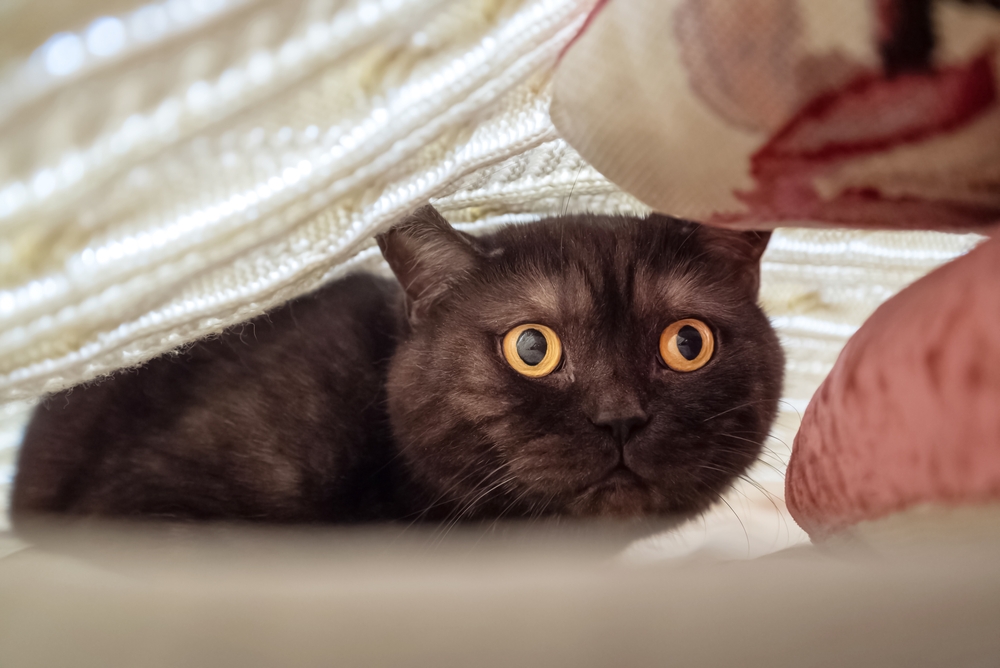
Start preparing now if you think your pet will suffer during the July Fourth fireworks. Contact our hospital team and schedule a visit to discuss treatment options, including prescription medications, home modifications, and other treatment strategies. Always perform a trial run before a noise event to ensure that the medications work and to check whether your pet has any side effects.
Other treatment strategies work best in combination with medications, including:
- Provide a quiet, safe space — Create an area with soft bedding and favorite toys where your pet can hide from the noise. They may already gravitate toward a specific location, such as a bathtub or closet, when they are scared.
- Play calming music — Classical dog-specific music, white noise, or headphones can help drown out the scary noise.
- Spray or diffuse pheromones — Spray Adaptil, a calming dog pheromone, on your pet’s collar or bedding, or diffuse the pheromone into the room.
- Try an anxiety wrap — Wrapping your pet in a ThunderShirt or similar brand can reduce their anxiety with the hug-like sensation.
Some pets benefit from a long-term training strategy called desensitization and counterconditioning that replaces a pet’s anxiety with a positive response using slow exposure paired with treats or other rewards. The process takes time and is best attempted outside a pet’s “noisy” season with a positive-reinforcement trainer’s assistance.
What are some other July Fourth safety tips?
Noise isn’t the only threat to your pet’s health on July Fourth. You should also use these tips to ensure a safe and secure environment:
- Secure the yard and home exits — Ensure guests coming and going from your home close fence gates and doors to prevent a pet escape.
- Identify your pet — Ensure your pet is wearing a collar and ID tag, and is microchipped to increase their chances of a safe return if they become startled and run away.
- Keep food and drink away from your pet — Don’t let pets steal food, and ensure guests do not share table food with your pet. Some party foods are toxic to pets, while others can cause gastrointestinal upset or obstruction.
- Provide shade and cool water during outdoor parties — Summer heat is no joke. Ensure pets take frequent breaks from the heat and have plenty of cool water and shade while outdoors.
- Keep your pet at home during holiday events — You may be tempted to take your pet to the neighbor’s party or a community event, but your pet will be safer and calmer at home.
Enjoy your July Fourth holiday by providing your noise-averse pet with a safe, quiet, secure environment. Call us and schedule a visit and consultation with our Livingston Veterinary Hospital team, so we can determine if anti-anxiety or sedative medications could help your pet relax, or for a general health checkup.
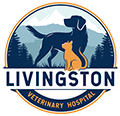

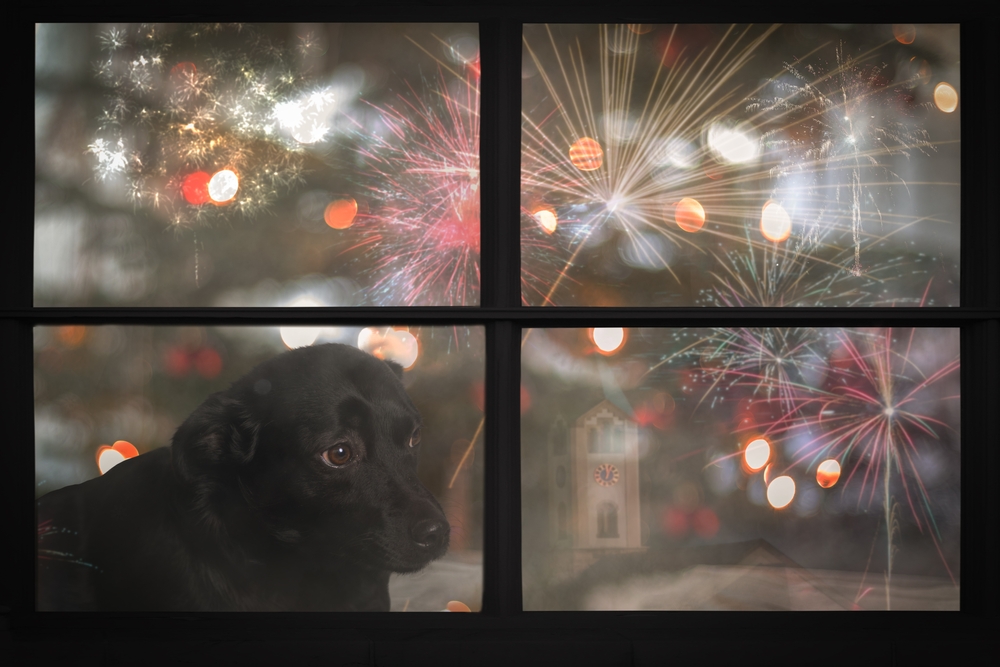
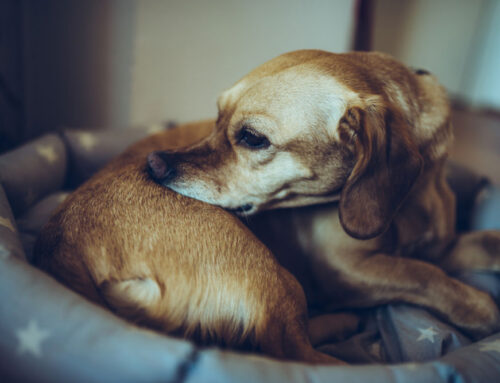
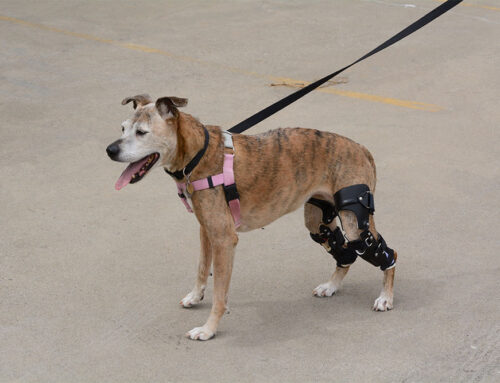


Leave A Comment